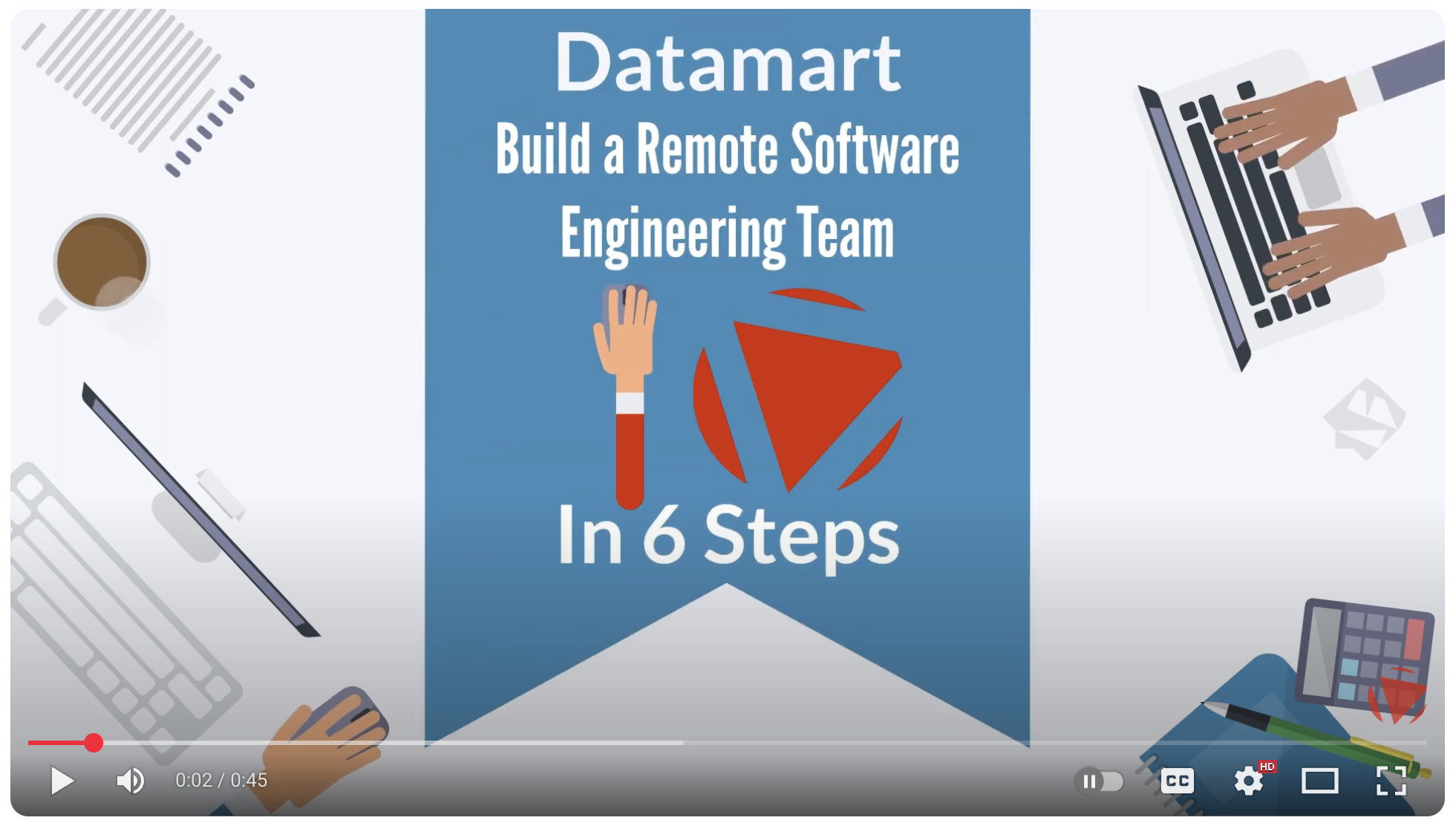SOFTWARE DEVELOPMENT
6 Steps to Build a Remote Software Engineering Team
How to hire the right resources from across the globe.
- Read time
- 3 min read
- Word count
- 636 words
- Date
- Apr 3, 2020

🌟 Non-members read here
Without a doubt, hiring remote software engineers for your job has a lot of benefits. For example, you’re able to select the most appropriate person for the job from a diverse pool of talented engineers from across the globe. Remote hiring also helps in cutting down operational costs and lack of overheads. Besides, the workforce is seldom unhappy and is usually highly productive.
“When recruiting, it was hard to stand out in Silicon Valley among all the other tech startups hiring. But among remote positions we were easily able to stand out as a very attractive option to candidates. It means we get to hire the best people from all over the world.” — Phil Freo, Head of Product and Engineering at Close.com
However, hiring the right resources can be challenging since, at times, personal interaction dominates the overall performance of the team. At times lack of communication and risks of information leakage are concerning since the people working for you are miles away. This article outlines six basic steps that can be used to hire a remote software engineering team.
Step 1: Create an attractive job offer and prepare the hiring sequential process
Once you’ve decided to hire a team member, you should focus on creating an attractive offer. It’s important to look for the right person, rather than the best one. Always sell your company’s profile and the role you’re hiring for, highlighting the projects that the candidate will be working on.
Step 2: Seek for references from your own network
It’s a good option to start looking within your own network, including your service user base. You may also want to seek references from your investors (if possible) or even social media, since these are one of the most popular platforms today to seek skilled people.
Step 3: Selection process also includes rejecting the unqualified applicants beforehand
With experience, it should get easier to understand which candidates are not compatible with your job offerings, and they should be sorted out quickly. This will save time to focus more on the right applicants. It’s usually a good practice to create a rejection template and adding a line of improvement for future interviews. Respect the candidates who took time and applied for your company.
Step 4: Get in touch with the selected candidates
Once the selection list is made, quickly move onto the direct interview process. Confirming that they have been selected and setting up video calls will help understanding the communication skills and determining the culture fit. The interview process may be divided into 4 parts:
- Interview 1: Brief introduction and high-level questions;
- Interview 2: In-depth and skill specific questionnaires;
- Task 3 (optional): A take home task to portray their skills;
- Interview 3: Cross-functional technical skills and important soft skills.
Step 5: Review and conclude the overall interview process with your team
This is a crucial step to ensure everyone in the team is happy with the finalized candidate. It’s not mandatory to have a complete alignment but seeking everyone’s opinion and getting rid of major concerns or observations is critical so that the team feels they’re a part of recruiting the most competent team member.
Step 6: Offering the position and completing the on-boarding formalities
Finally, when all is complete, it’s time to make the offer to the candidate. A few mandatory things to consider:
- Get a reference check without a budget;
- Never assume that offer accepted is a closure of recruitment;
- Maintain a waiting list in case of offer denials;
- Keep up with the candidate until the joining date;
- If required, begin with a trial period to check the right fit.
Although these are not standard norms, these are usually effective approaches practiced by successful start-ups in order to identify the right resources with the right skills, working for the right position.